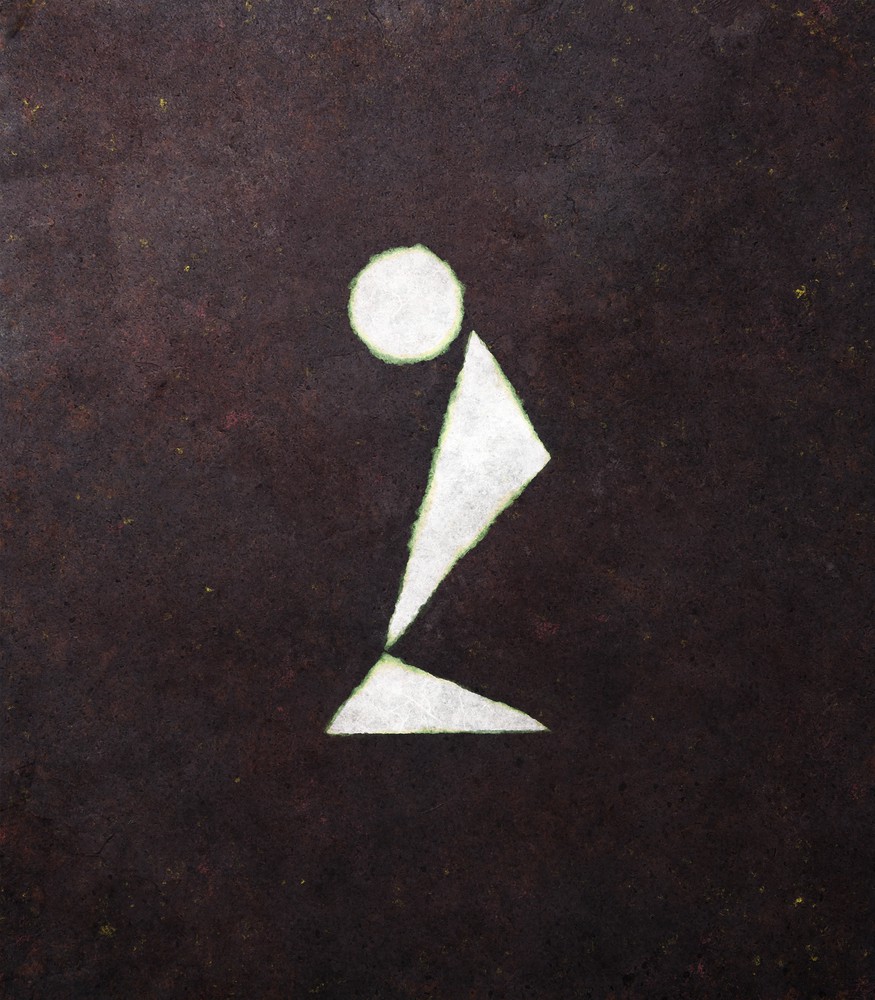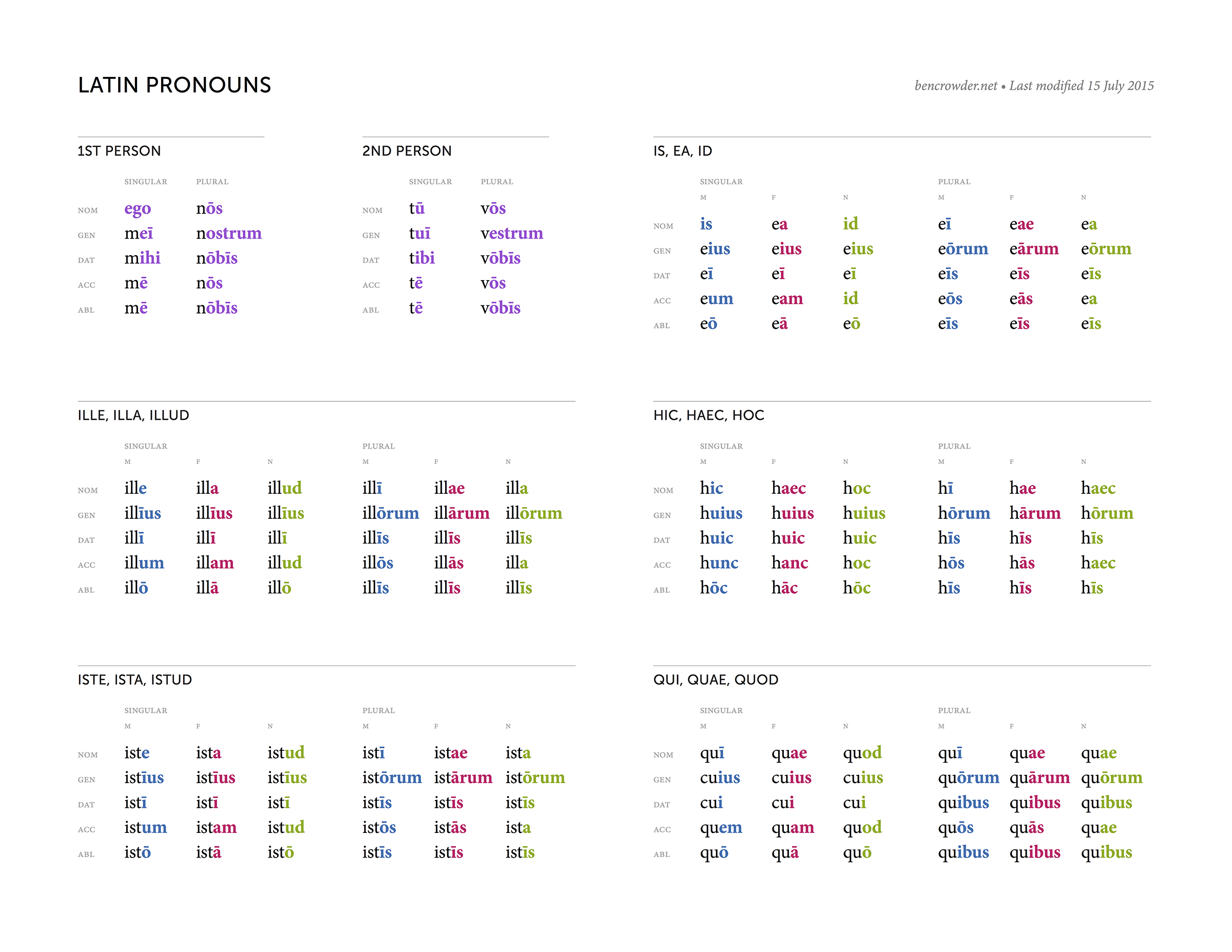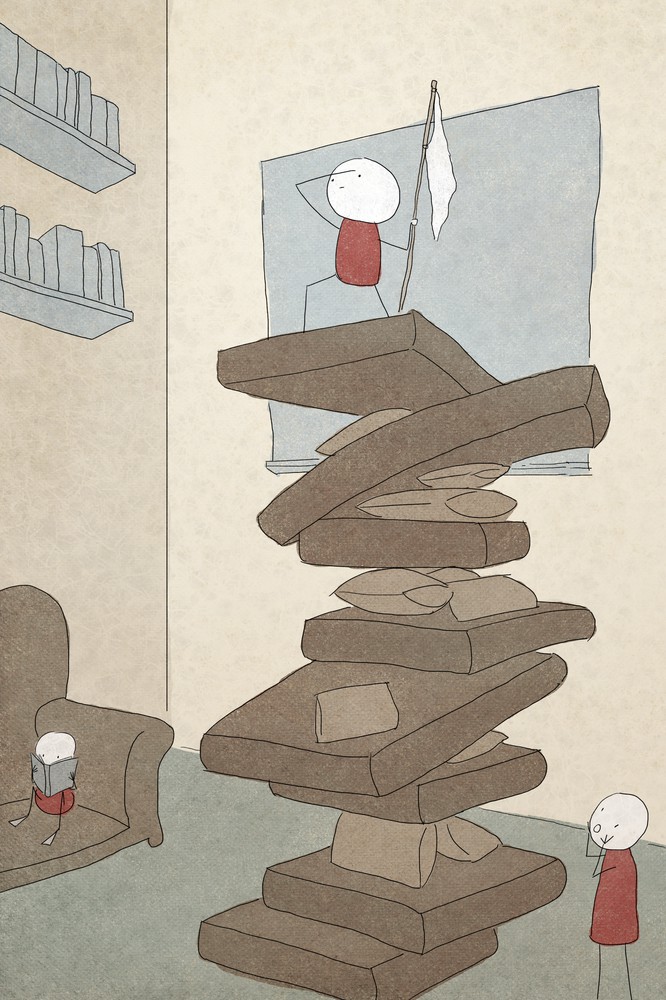Redeemer
This one requires a bit of an explanation. The three panels represent, respectively:
- Christ’s birth
- His ascension
- His future return, clad in red robes; also represents the marks in his hands and feet

This one requires a bit of an explanation. The three panels represent, respectively:

My circle series seems to have become a circle-and-triangle series.

Another new abstract religious painting.

A new abstract religious painting, wherein I branch out from circles to, well, lines.


Nerdy newsflash: I made a Latin pronouns chart to go along with the conjugation charts and declensions chart:

There are several I didn’t include (quis, aliquis, ipse, etc.) because I wanted to keep it from getting too crowded.
As with the conjugations chart, I made this in PlotDevice.
I just finished reading Life in a Medieval City, by Joseph and Frances Gies, and in the notes on page 236 I found this interesting list of occupations taken from the Paris tax list of 1292:
The Society of Creative Anachronism has a more detailed page listing the French occupation names and a breakdown by gender. For example, there was one male hangman (bourriau), one female mole trapper (taupiere), four male pike-makers (piqueeur), one female tart seller (tartriere), one male log floater (atireeur de busche), etc. Fascinating stuff.
The tax list was published by Hercule Géraud in 1837 in Paris sous Philippe-le-Bel, which is conveniently on Google Books (the list itself, “Le livre de la taille de Paris pour l’an 1292,” is a bit later in the book).

I don’t know how many of you remember my Mormon Texts Project, but it’s coming along well and is in good hands.
Today I’ve got a new (but similar) project to propose: the Mormon Audiobooks Project, making old public domain Mormon books available for free in audiobook format.
It makes the most sense to do this through LibriVox, an already-established platform for free audiobooks (the equivalent of Project Gutenberg). They have a good process in place that includes book coordination and quality control. Volunteers would sign up through their system and record however many chapters they feel like doing.
It also makes sense to use the Mormon Texts Project catalog as a base. That way the source books are available to all volunteers.
These obviously would not be professionally produced audiobooks, but a free audiobook is almost always better than no audiobook. (For some of the books there are already commercial audiobooks by professional voiceover artists, of course.)
The hitch with all of this: I…don’t really listen to audiobooks. Usually they put me to sleep, and if they don’t, I get distracted after about sixty seconds and miss big chunks of the text. (The same things happen when anyone reads to me in person.)
So, I’m probably not the best person to run this. I think it’s important, and I’m willing to help with process and moving things along, but it really needs someone who loves audiobooks at the head of it. If you think you could be that person, let me know.
Also, if any of you are interested in the project, either as listeners or volunteers, leave a comment or let me know.
Update: I’ve put up a page for the project with volunteering instructions.
I was excited to see this: with Xcode 7, Apple now allows people to run their custom apps on their own devices without having to pay the $99/year membership fee:
Now everyone can get their app on their Apple device.
Xcode 7 and Swift now make it easier for everyone to build apps and run them directly on their Apple devices. Simply sign in with your Apple ID, and turn your idea into an app that you can touch on your iPad, iPhone, or Apple Watch. Download Xcode 7 beta and try it yourself today. Program membership is not required. (link)
This is perfect for me. I’ve long wanted to write apps for my own use, but because I don’t have any interest in selling them, the $99/year felt like a superfluous cost. (I also have a strong aversion to monthly subscriptions.)
Time to learn Swift…